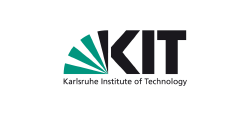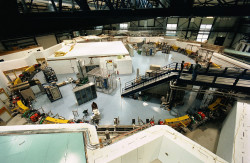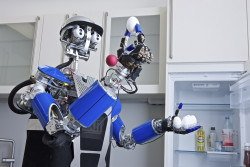Karlsruhe Institute of Technology
Karlsruhe Institute of Technology (KIT) is a higher education and research organization with about 9.500 employees, 25.000 students and a total annual budget of about 850 million Euro. It bundles the missions of a renowned technical university and a major large-scale research institution of the Helmholtz Association. Within these missions, KIT is operating along the three strategic fields of action of research, teaching and innovation. The research strategy aims to continuously develop possible synergies and to strengthen the character of the research profile through strategic cooperation with other institutions at regional, national, European and international level. KIT is devoted to top research and excellent academic education as well as to being a prominent location of academic life, life-long learning, comprehensive advanced training, exchange of know-how and sustainable innovation culture.
Its Institute for Automation and Applied Informatics (IAI)conducts research and development in the area of innovative, application-oriented information, automation and system technology for futureproof energy systems as well as complex industrial and laboratory processes. Interdisciplinary working groups conceive integrated systems solutions, with all development phases being covered from conceptual design to modelling and simulation, to prototyping, to practical testing, also under industrial conditions. The Institute carries out projects in cooperation with partners from industry, administration, and other research institutions in Germany and abroad. Among others, the Institute is involved in projects of the EU, various federal and state ministries, the DFG (German Research Foundation), AiF (German Federation of Industrial Research Associations), and German industry.
Main thematic topics of the Process Optimisation, Information Management, Applications Group (PIA) are:
- Process optimisation, simulation, and modelling for the production of highly complex, functional, and miniaturized components based on micro- and nanotechnologies
- development and system integration of different 3D printing processes
- database-supported decision support systems, knowledge-based systems for process management,
- nanosafety research - knowledge transfer and communication
Websites:
Links to social media accounts:

KIT logo

© Markus Breig / KIT

© Forschungszentrum Karlsruhe / KIT

© Wolfgang Schaible / KIT
